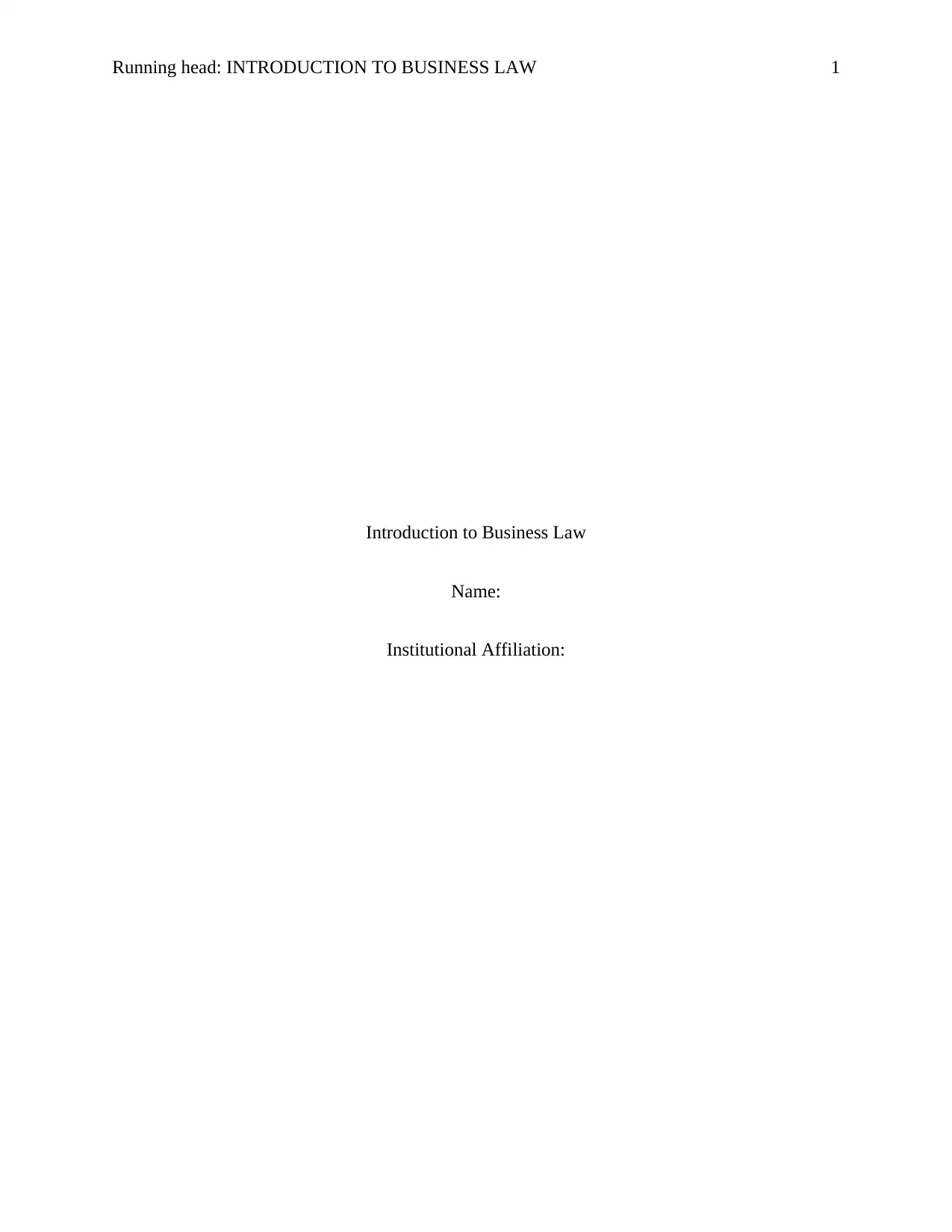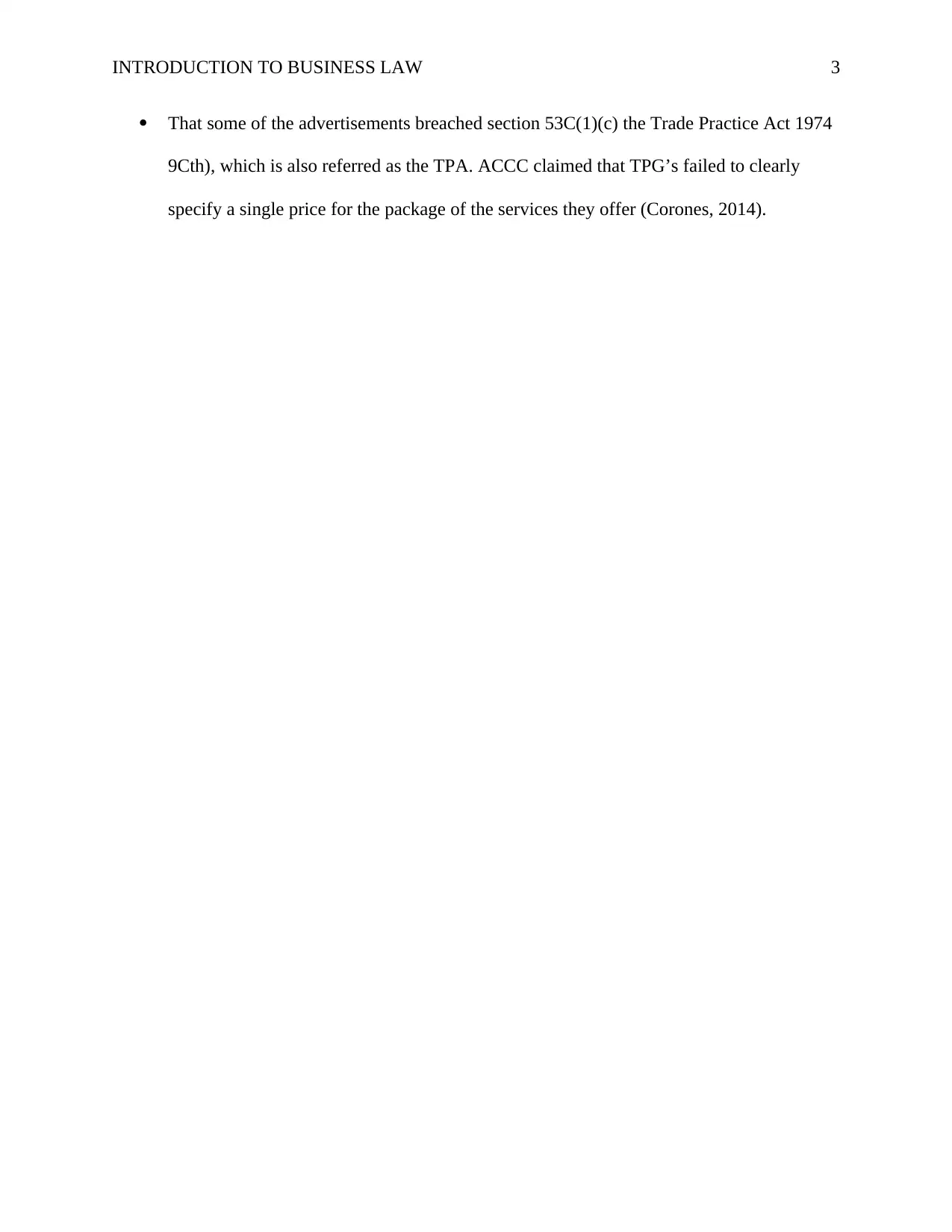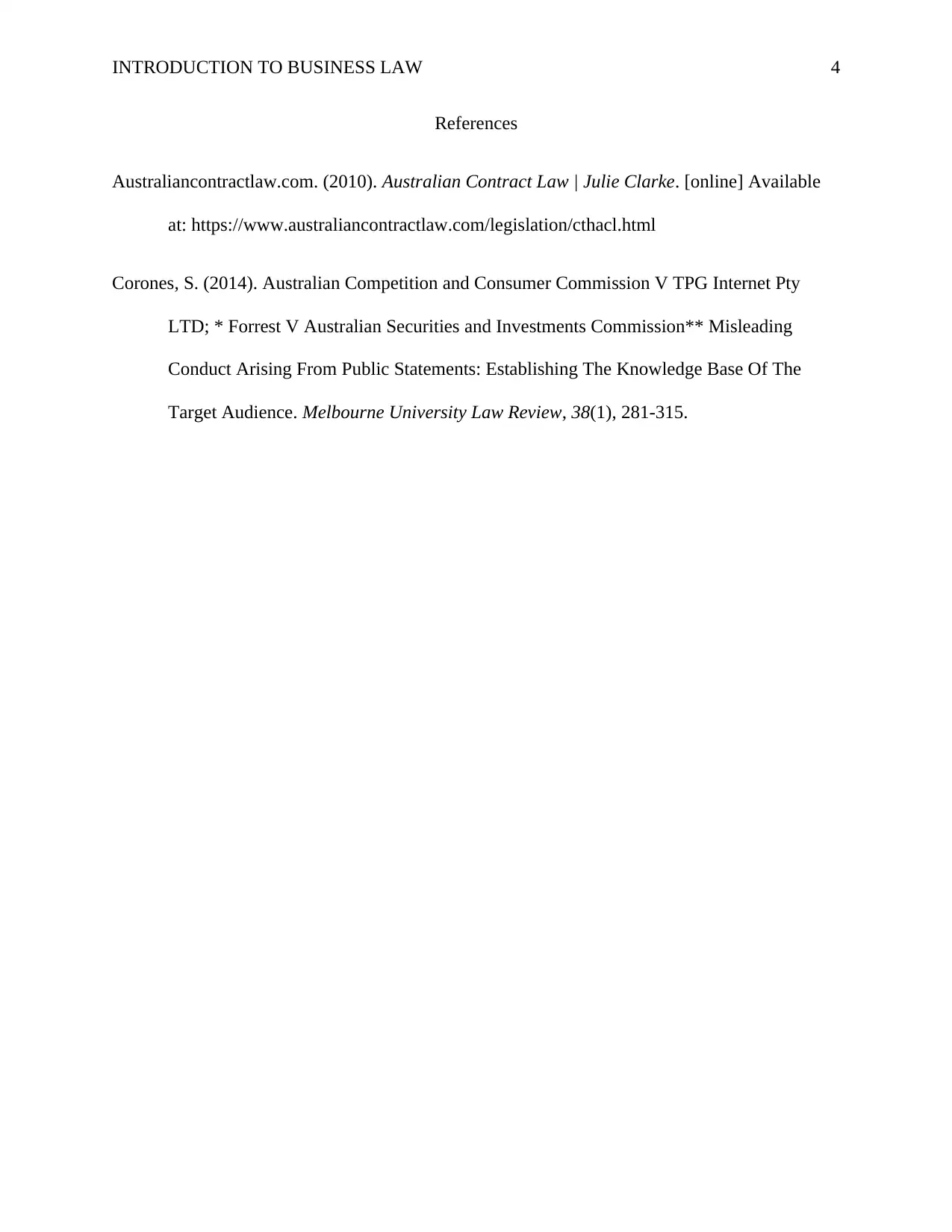Introduction to Business Law Report
VerifiedAdded on 2019/10/31
|4
|424
|142
Report
AI Summary
This report examines the Australian Competition and Consumer Commission (ACCC) case against TPG Internet. The ACCC alleged that TPG contravened several sections of the Trade Practices Act 1974 (TPA) and the Competition and Consumer Act 2010 (CCA), specifically those related to misleading and deceptive conduct. The report details the alleged breaches, focusing on sections 18 of the CCA (misleading or deceptive conduct) and sections 52, 53(e), 53(g), and 53C of the TPA. The ACCC argued that TPG's advertisements were misleading due to discrepancies between advertised prices and the actual terms and conditions. The report highlights the importance of clear and accurate advertising in complying with Australian consumer law. The analysis uses legal sources to support its claims and provides a comprehensive overview of the case's implications for businesses.
1 out of 4










![[object Object]](/_next/static/media/star-bottom.7253800d.svg)